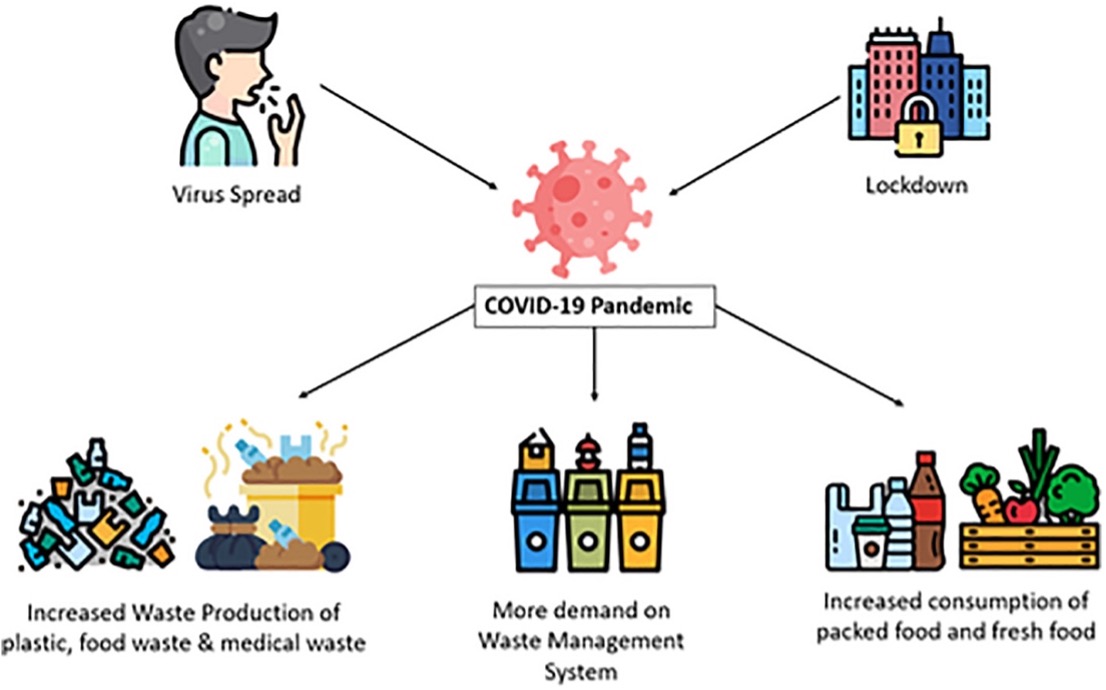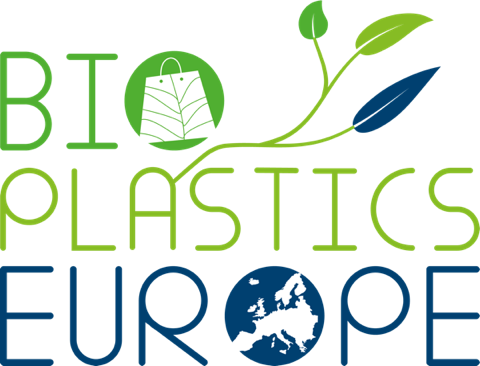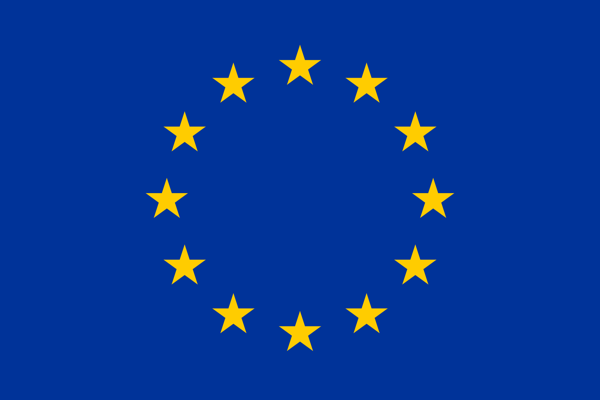Increase of plastic household waste due to Covid-19
By Viktoria Voronova, Technical University of Tallinn, Estonia

Illustration: graphical abstract of the paper “COVID-19 and waste production in house-holds: A trend analysis” (Filho et al., 2021).
Our Estonian BIO-PLASTICS EUROPE team at Tallinn University of Technology (TalTech), together with international colleagues, conducted a survey to investigate how consumption habits changed in 23 countries during the COVID-19 pandemic and how the pandemic impacts household waste generation. The level of household consumption has increased during the pandemic, which has led to changes in waste generation. For instance, consumers are buying more packaged or frozen products and relying more on food delivery services. This results in a rise in food and plastic waste worldwide, according to our survey results.
The survey received 204 responses among 23 countries all over the world. The largest portion of the respondents were aged 31 to 40 (36%), followed by respondents between the ages 21-30 (30%). It is also important to mention that more than 60% of the respondents have post-graduate qualifications. Approximately 45-48% of respondents started buying more packaged and fresh food, and used a food delivery service since the beginning of the COVID-19 pandemic. This has led to an increase in household waste generation, especially in single-use plastics. The highest increase was observed in plastic packaging and food waste. The main reason for such behaviour is that people are spending more time at home. Only 31% of respondents answered that they always look for sustainable packaging options when purchasing products (e.g., reusable packaging, biodegradable packaging).
In order to improve the situation, some consumers mentioned that food producing companies should pay more attention to product design, so they can come up with ways to use less packaging, and to increase the recyclability of the existing packaging materials. Awareness of the citizens regarding the reduction of waste generated very much depends on the communication with the municipalities and local waste management authorities.
Collaboration between all stakeholders including producing companies, municipalities and consumers is necessary to increase awareness on waste prevention, correct waste separation and recycling of valuable fractions of household waste. This will facilitate the circulation of valuable materials and contribute to the shift to a more circular economy.
The full research article can be found here


